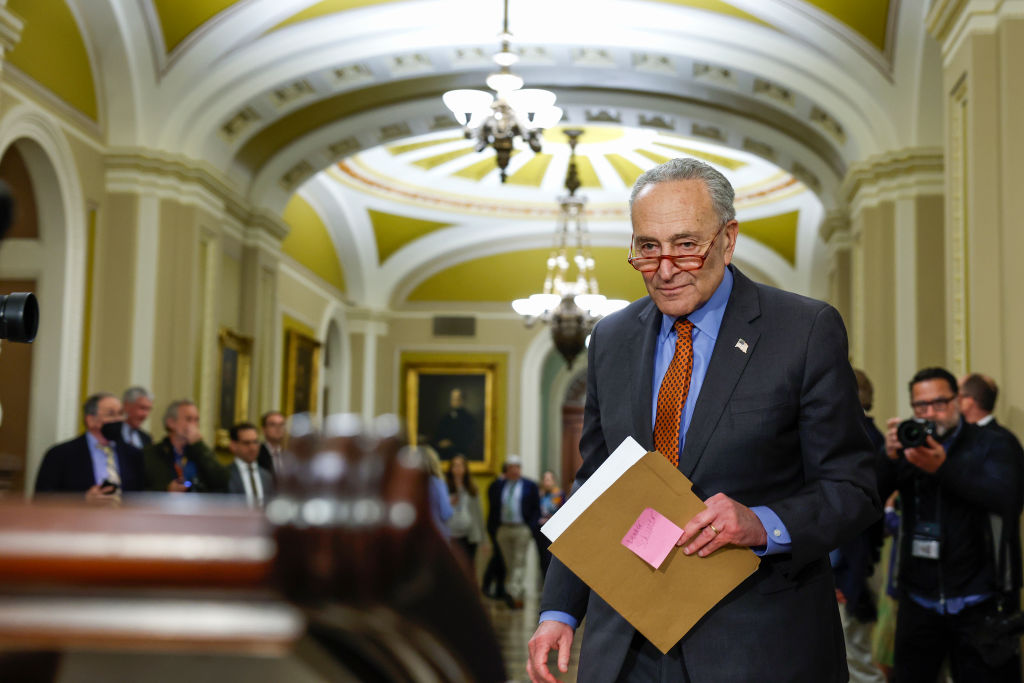Senate GOP blocks Democrats from temporarily replacing Sen. Dianne Feinstein on Judiciary Committee


A free daily email with the biggest news stories of the day – and the best features from TheWeek.com
You are now subscribed
Your newsletter sign-up was successful
Senate Majority Leader Chuck Schumer (D-N.Y.) asked unanimous consent Tuesday evening to temporarily replace Sen. Dianne Feinstein (D-Calf.) on the Judiciary Committee with Sen. Ben Cardin (D-Md.), saying he was making the request "not just as leader but as Dianne's friend." Senate Republicans said no. Feinstein, who has been absent since being hospitalized with shingles in February, requested the temporary replacement after facing pressure from some Democrats to give up her Judiciary seat or even resign.
Feinstein's absence has left the Judiciary Committee deadlocked, with an even number of Democrats and Republicans, meaning Democrats have been unable to advance about 15 judicial nominees to the Senate floor for a confirmation vote. Schumer can bring the resolution to temporarily replace Feinstein up for a vote, but Republicans appear to be in lockstep opposition to the maneuver so it would be unlikely to get the 10 GOP senators needed to overcome a filibuster.
Schumer, who spoke with Feinstein on Friday, said "she and I are both very hopeful she will return very soon."
The Week
Escape your echo chamber. Get the facts behind the news, plus analysis from multiple perspectives.

Sign up for The Week's Free Newsletters
From our morning news briefing to a weekly Good News Newsletter, get the best of The Week delivered directly to your inbox.
From our morning news briefing to a weekly Good News Newsletter, get the best of The Week delivered directly to your inbox.
"At the moment, Democrats are deferring to the legendary California senator to make her own decisions about her future, hoping she'll return to Washington soon," but they "are also signaling they can't wait indefinitely," Politico reports. "Unless Feinstein returns or resigns, all Democrats can do is wait. Feinstein's term ends at the end of 2024, and her office on Tuesday pointed to last week's statement in which she said she expects to come back."
A free daily email with the biggest news stories of the day – and the best features from TheWeek.com
Peter has worked as a news and culture writer and editor at The Week since the site's launch in 2008. He covers politics, world affairs, religion and cultural currents. His journalism career began as a copy editor at a financial newswire and has included editorial positions at The New York Times Magazine, Facts on File, and Oregon State University.
